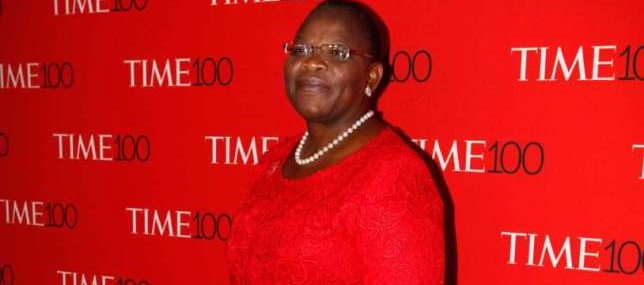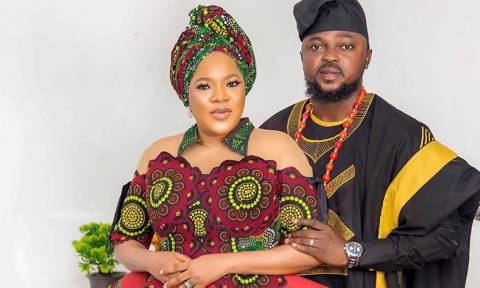
With generous government grants and numerous appearances on the red carpet, Nigeria’s outgoing President Goodluck Jonathan made a mark in Nollywood – the country’s home-grown movie industry turned billion-dollar enterprise. As Jonathan prepares for his exit, it is uncertain times for Nollywood, reported the Voice of America on Thursday.
In the more than 20 years since Nigeria’s Hollywood emerged, Nollywood has grown from low-budget movies sold on VHS tapes to a $5 billion movie industry.
In a 2006 UNESCO study, Nollywood was ranked the second-most productive movie industry, ahead of Hollywood and behind only India’s Bollywood.
But it was an uphill struggle until Jonathan came along, said Mike Nliam, who works at the Association of Movie Producers in Nigeria.
“We have had tremendous support from this government. I think it’s the government that has really looked into the potential and what Nollywood can be,” said Nliam.
In November 2010, Jonathan announced a $200 million fund designed to make it easier for Nigerian producers and filmmakers to get loans for their projects.
In March 2013, he announced a N3 billion – or $115 million – “Project ACT Nollywood” to build the capacity of filmmakers and actors in the movie industry while focusing on reducing the hurdles for investors.
The announcement was made to celebrate the 20th anniversary of Nollywood.
The president hoped that Nollywood would become the world’s top movie industry, and he believed government support for the industry was good for the economy. But critics alleged that Jonathan was buying high-profile support ahead of the 2015 elections.
Whatever the motivation, Nollywood producer Femi Odugbemi said backing from the highest level has made a huge difference in the industry.
“Right now, this government celebrates the industry. You can see Nollywood stars standing next to the president. You can see the president going to the premiere of a Nollywood film. Everyone can see that he has elevated the status of the industry,” said Odugbemi.
And that support was repaid during the presidential campaign, as movie stars and Nollywood actors came out in force behind Jonathan.
“We are very influential people. Our actors are very influential people,” said Nliam. “Goodluck has been using them for promotion and to create that razzmatazz.”
Despite the razzmatazz, Nollywood glamour did not translate into enough votes, and the prospect of Jonathan departing office when Muhammadu Buhari is inaugurated on May 29 is unsettling for Nollywood.
The industry is in a slump after it peaked in 2008 with more than 2,600 films produced.
With presidential bolstering, the question is why? Many filmmakers and producers found it hard to tap into government funds due to excessive bureaucracy, informal processes or grants not paid out.
And then the hands-on do it yourself approach that proved so successful when Nollywood began might be stalling growth two decades later.
Many filmmakers still finance their productions with loans from friends and family and money coming from their own pocket, according to director Sundeke Lane, whose latest movie was made possible by a generous friend.
“The reason I’m not sweating is that I’m not under pressure. In other words, if I took the money from the bank I’d be really worried right now. In any case, you have to make the money and pay the money back and hopefully get the next project going,” said Lane.
With only 20 movie theaters in a country of 170 million people – and a constant influx of Hollywood blockbusters – getting your film screened is a struggle, Lane said.
That is another issue: profit per film. Nollywood doesn’t even make the top 10-list on the largest markets by box office, despite more than 2,000 movies produced each year.
Perhaps the biggest problem is piracy. According to World Bank estimates, 90 per cent of the DVDs in circulation in Nigeria are illegal copies. New releases have a two-week window before pirated versions can be found on shelves in Lagos’ Alaba market, a centre for pirated goods, said Lane.
“The pirates have been having a field day because there hasn’t been any enforcement to drive them away or to drive them underground,” said Lane. “The Nigerian film industry has to be rescued from the grips of the pirates.”
President-elect Buhari has said he will clamp down on corruption. In Nollywood hopes are that this will include pirated movies.



















